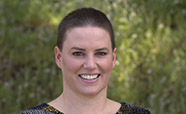There are two core first-year papers in Religion. The first introduces students to Hinduism and Buddhism. It examines Hindu mythology, the teachings of the Buddha, religious disciplines such as yoga and meditation, the expression of religious devotion in art and architecture, and the role of the two religions in contemporary political debates in Asia.
The second introduces students to the three Abrahamic faiths: Judaism, Christianity and Islam. It examines their origin in the land of Palestine, a cross-roads of ancient civilisation, and the way in which each tradition gradually took on its distinctive modern form. It discusses the ways in which all three faiths have responded to the challenges of modernity.
More advanced papers in Religion include Psychology of Religion, Zen Buddhism, Ancient Religion: Egypt to Mesopotamia as well as other courses which examine religion in connection with topic like science and magic, law and politics, or the human body.
How will I study?
Students enrolled in first-year courses in Religion attend two lectures each week as well as take part in small-group tutorial sessions. In addition to a final exam, there is internal assessment for each course. This normally involves one major assignment or essay, as well as other shorter assignments.
For those who cannot study on-campus, it is possible to take most Religion papers by distance study, regardless of where you live in New Zealand.
Study combinations
Since few areas of human life have remained untouched by religious influence, Religion combines well with many subjects in the Humanities. Human history has been profoundly shaped by religious beliefs and conflicts, while the study of literature and art is greatly enhanced by a knowledge of religious beliefs and symbols. Skills and insights are therefore readily transferable between Religious Studies and subjects such as Anthropology, History, Classics, Politics, and Philosophy.
While most Religion students take the subject as part of a general Arts degree, it is also very popular among students doing Commerce, Law, and the Sciences. Religion taken as a minor subject in another degree programme can add variety to that programme and broaden the range of subjects that can be included in your CV. It is also possible to take a minor in Buddhist Studies.
Further study
Postgraduate studies include master's degrees by research or by coursework (either in Religion or in Buddhist Studies) and a PhD. Graduates in Religion who choose to go overseas have been accepted for postgraduate study at some of the world's best universities.
Student exchange
You may be able to do part of your study overseas through the University's extensive student exchange programme or as a postgraduate student. In the exchange programme you pay only your New Zealand fees and complete your qualification within the same timeframe as if you'd never been away.
Background required
Students of any religion, or none, are welcome. No previous qualifications are required, only a lively sense of curiosity and a willingness to grapple with important but difficult and contentious issues. It is possible to cross-credit previous study in Religion at another university.
